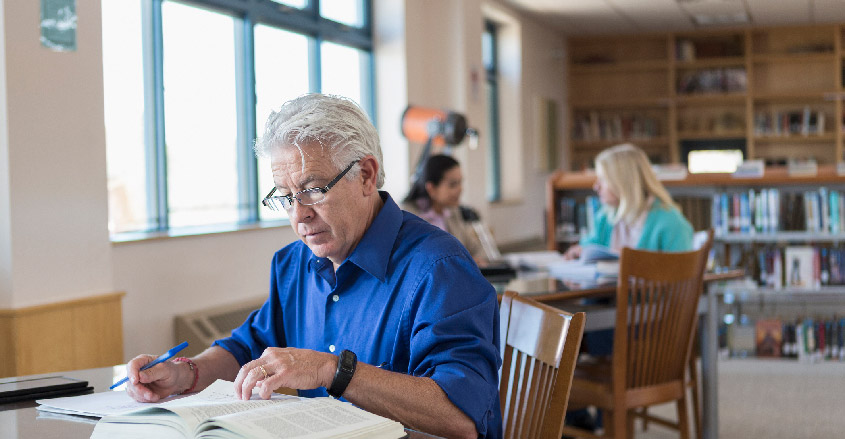For people whose whole life has revolved around using their mind, retirement can be a bind.
All of those degrees and awards, the presentation notes, the papers, the grand vision of achievement — all of that can gradually deteriorate once you walk out the door.
Until, eventually, all you have left are crosswords for company and word searches for stimulation.
It is this slow and painful loss of knowledge that retirement expert Robert Laura has studied. He helps people transition into retirement from lives spent rubbing shoulders with world leaders and consulting with Fortune 500 CEOs.
When it comes to retirement, people tend to fear losing their health, their mobility, their loved ones.
But people also worry about losing their ability to understand, explain, problem-solve, and have an impact on others.
How do you make sure you retain your brainpower into retirement?
These are three things that Laura came up with to make sure of a successful transition.
Budget for knowledge
So you might have planned a travel budget, enough money to see your grandkids all over the country, or a fitness budget, money for yoga classes to keep your body strong and supple.
But what about fitness of your mind?
Highly educated folks need to factor in a knowledge budget. Intelligent people don’t like to stop learning, and keeping the mind engaged can be key to staying engaged with life.
This can mean different things for different people. Some will be happy to splash out few thousand dollars on a trip to the Amazon to study crocodiles, but others might just want to learn Japanese from an online tutor in the privacy and comfort of their own home.
The point is, you should make a budget for it.
Attend conferences
Laura’s second suggestion is to attend conferences, and present at them wherever possible.
Don’t just stick to the retirement circuit either. There are bunch of retirement-based conferences, but you can branch out to specific conferences based on your interests.
All those degrees and credentials can come in handy when submitting a speaker’s proposal.
This is a good way to not only keep sharing the knowledge gained during your working life but to keep your own head in the game.
Start writing
The last of Laura’s suggestions is to take on a writing project. Just something to serve as an outlet for your own learning, and something that can be shared. This could be a blog, a book, a presentation, even a manifesto.
Writing can turn retirement from a slow loss of knowledge into an opportunity for learning and sharing.
Dementia is avoidable in many cases, according to experts. Eating well, exercise, limiting alcohol and tobacco are good steps, says the Alzheimer’s Society.
And yes, use your brain, even if it’s just for doing crosswords.


